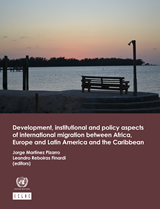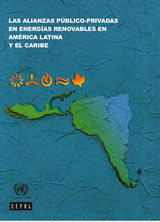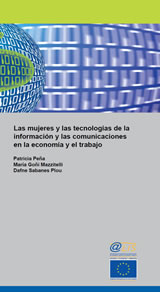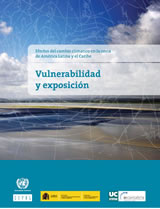PUBLICATIONS

(January 2012)
Editors:
Jorge Martínez Pizarro, Leandro Reboiras Finardi
The book includes four chapters related to studies on African and Latin American migration,
at different and similar scales regarding some countries of Europe. The documents were presented by their
authors at a workshop jointly organized by ECLAC, the United Nations Economic Commission for
Europe (ECE) and the United Nations Economic Commission for Africa (ECA).

(May 2012, Spanish only)
Authors: Manlio F. Coviello, Juan Gollán and Miguel Pérez
This document highlights the importance of private participation for increasing the use of non-conventional
renewable energies in medium and large-scale projects, which are usually connected to a national distribution
network. It also includes a brief explanation of the electricity market segmentation in some countries
(Argentina, Brazil, Chile, Colombia, Mexico, Peru and Uruguay) and has a section focusing on public-private
partnerships.

(April 2012, Spanish only)
Authors: Patricia Peña, María Goñi Mazzitelli and Dafne Sabanes Plou
This publication examines – from a women-rights perspective – the participation and
contribution of women to economy and labor in the area of information and communications technologies (ICT).
Building on the reports, declaration and action plans having resulted from UN international conferences, the
document presents an overview of the progress made, as well as of the challenges and difficulties concerning
ITC policies and digital inclusion.

(April 2012, Spanish only)
Authors: ECLAC, Government of Spain, University of
Cantabria
This document is the second of a series of texts that have been drafted under the Regional
Study on climate change impacts on the Latin American and Caribbean coastal regions. It analyzes four
geographic areas: North America, Central America, South America and the Caribbean, with a coastal length that
amounts to approximately 72,182 km. It also analyzes changes identified in coastal dynamics, the influence of
climate variability, information on the coastal regions' vulnerability – both at a physical and a
socioeconomic level – as well as the physical configuration of such regions, and the future impact and
foreseeable risks.